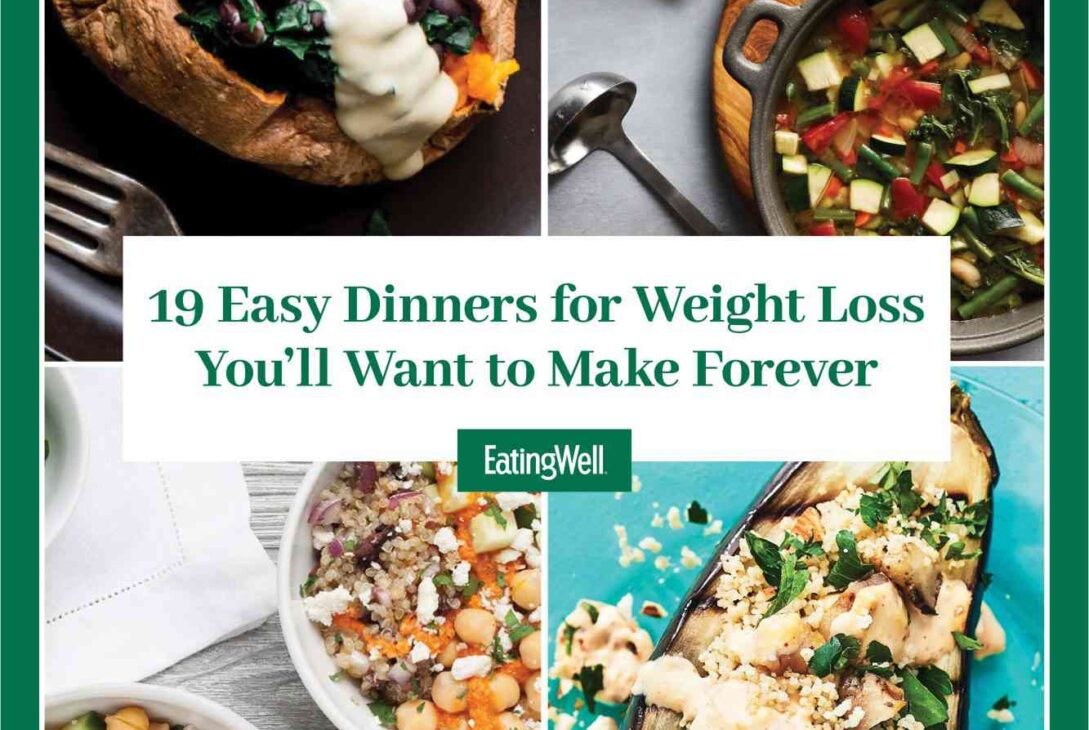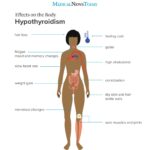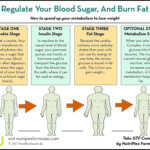Prepare healthy meals for weight loss by incorporating lean proteins, whole grains, and plenty of vegetables. Avoid processed foods and control portion sizes.
Achieving weight loss goals requires mindful eating and balanced nutrition. Opt for meals rich in lean proteins like chicken, fish, or plant-based options. Include whole grains such as quinoa, brown rice, and whole wheat products. Vegetables should make up a significant portion of your plate, offering essential vitamins and fiber.
Limit processed foods and sugary snacks, as they add unnecessary calories and lack nutritional value. Control portion sizes to avoid overeating. By focusing on these principles, you can create delicious, satisfying meals that support your weight loss journey.

Credit: www.youtube.com
Balanced Nutrition
Creating healthy meals for weight loss involves more than just cutting calories. It requires a focus on balanced nutrition. This ensures your body receives all the essential nutrients it needs. Balanced nutrition helps maintain energy levels and supports overall health. Let’s explore the key components of balanced nutrition.
Macronutrients
Macronutrients are nutrients your body needs in large amounts. They provide energy and are vital for growth and repair. There are three main types of macronutrients:
- Proteins: Essential for building and repairing tissues. They also support muscle growth. Sources include lean meats, beans, and tofu.
- Carbohydrates: The primary source of energy for the body. Opt for complex carbs like whole grains, vegetables, and fruits.
- Fats: Important for brain health and energy. Choose healthy fats such as avocados, nuts, and olive oil.
Balancing these macronutrients helps your body function optimally. It also keeps you feeling full and satisfied.
Micronutrients
Micronutrients are vitamins and minerals needed in smaller amounts. They play a crucial role in various bodily functions. Below are some important micronutrients:
- Vitamin A: Supports vision and immune function. Found in carrots, sweet potatoes, and spinach.
- Vitamin C: Boosts the immune system and improves skin health. Sources include citrus fruits, strawberries, and bell peppers.
- Iron: Essential for blood production. Found in red meat, beans, and fortified cereals.
- Calcium: Important for bone health. Sources include dairy products, leafy greens, and almonds.
Ensuring you get enough micronutrients helps prevent deficiencies. It also supports overall health and well-being.
| Macronutrient | Sources | Benefits |
|---|---|---|
| Proteins | Lean meats, beans, tofu | Builds and repairs tissues |
| Carbohydrates | Whole grains, vegetables, fruits | Provides energy |
| Fats | Avocados, nuts, olive oil | Supports brain health |
By focusing on both macronutrients and micronutrients, you can create balanced meals. This approach helps you achieve your weight loss goals while staying healthy.
Meal Planning
Creating a meal plan is vital for weight loss. It helps you stay organized and make healthy food choices. With a good plan, you can control your portions and avoid unhealthy snacks. Here are some tips for effective meal planning.
Weekly Schedule
Plan your meals for the week to save time and avoid stress. Use a calendar or planner to jot down what you will eat each day. This ensures you have a balanced diet throughout the week.
| Day | Breakfast | Lunch | Dinner |
|---|---|---|---|
| Monday | Oatmeal with fruits | Grilled chicken salad | Steamed fish with veggies |
| Tuesday | Greek yogurt with nuts | Quinoa and veggie bowl | Turkey stir-fry |
Portion Control
Portion control is key to weight loss. Eating the right amount prevents overeating and helps you stay full. Use smaller plates and measure your food to keep portions in check.
- Use a kitchen scale to weigh your food.
- Fill half your plate with vegetables.
- Use smaller plates and bowls.
- Avoid second helpings.
By planning your meals and controlling portions, you can enjoy tasty, healthy meals. This way, you can reach your weight loss goals without feeling deprived.
Grocery Shopping
Grocery shopping is crucial for making healthy meals for weight loss. The choices you make here influence your diet significantly. By selecting nutritious ingredients and managing your budget, you can create delicious, healthy meals without overspending.
Healthy Ingredients
Choosing the right ingredients is essential for weight loss. Focus on whole foods and avoid processed items. Here are some key categories to consider:
- Fruits and Vegetables: Fresh produce is packed with vitamins and fiber.
- Lean Proteins: Chicken, fish, and tofu are excellent choices.
- Whole Grains: Opt for brown rice, quinoa, and whole wheat bread.
- Healthy Fats: Avocados, nuts, and olive oil provide essential nutrients.
Budget-friendly Tips
Eating healthy on a budget is possible with some smart strategies. Here are some tips to help you save money while buying nutritious foods:
- Plan Your Meals: Create a weekly menu and make a shopping list.
- Buy in Bulk: Purchase items like grains and nuts in larger quantities.
- Seasonal Produce: Fruits and vegetables in season are usually cheaper.
- Store Brands: Generic brands often offer the same quality at a lower price.
- Frozen Foods: Frozen fruits and vegetables are nutritious and cost-effective.
Here’s a simple table to help you choose budget-friendly, healthy ingredients:
| Category | Budget-Friendly Options |
|---|---|
| Fruits | Apples, Bananas, Oranges |
| Vegetables | Carrots, Spinach, Broccoli |
| Proteins | Eggs, Chicken, Beans |
| Grains | Oats, Brown Rice, Whole Wheat Pasta |
| Fats | Peanut Butter, Sunflower Seeds, Olive Oil |
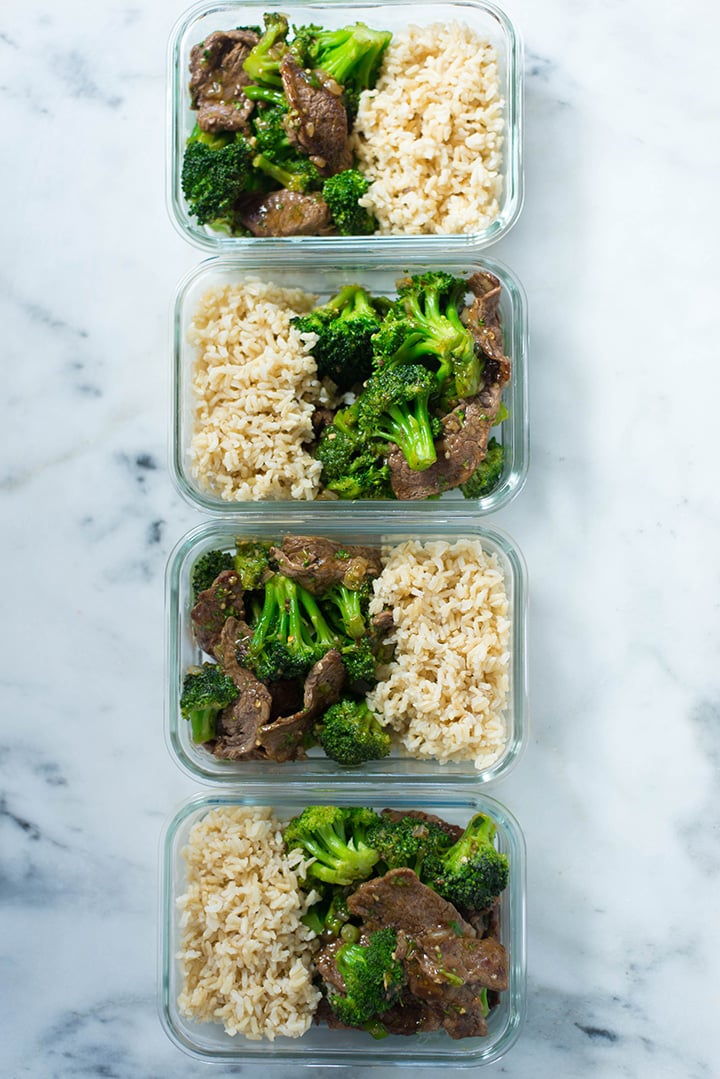
Credit: www.asweetpeachef.com
Cooking Techniques
Cooking healthy meals for weight loss can be simple and fun. Using the right techniques helps you enjoy tasty food while shedding pounds. Let’s explore some effective methods to cook low-fat meals and make healthy substitutions.
Low-fat Cooking
Low-fat cooking techniques keep meals tasty without extra calories. Use these methods to prepare delicious, healthy dishes:
- Grilling: Grilling adds a smoky flavor without added fats. Use lean meats and vegetables.
- Steaming: Steaming retains nutrients and keeps food moist. It’s perfect for veggies and fish.
- Baking: Baking is great for meats and veggies. Use parchment paper to avoid oil.
- Poaching: Poaching is gentle and keeps food tender. Try it with eggs, chicken, or fish.
Healthy Substitutions
Healthy substitutions help cut calories and boost nutrition. Use these swaps to make meals healthier:
| Common Ingredient | Healthy Substitute |
|---|---|
| Butter | Mashed avocado or Greek yogurt |
| Sour Cream | Greek yogurt |
| White Rice | Cauliflower rice or quinoa |
| Pasta | Zucchini noodles or whole grain pasta |
| White Flour | Almond flour or whole wheat flour |
These simple swaps make a big difference. They reduce calories and add nutrients to your meals.
Breakfast Ideas
Starting your day with a nutritious breakfast is key for weight loss. A good breakfast keeps you full and energized. It helps control cravings and boosts your metabolism. Here are some healthy breakfast ideas to kickstart your day on the right note.
Quick Recipes
Busy mornings call for quick, easy, and healthy breakfast options. Here are some ideas:
- Overnight Oats: Mix oats, milk, and chia seeds. Let it sit overnight. Top with fruits and nuts in the morning.
- Greek Yogurt Parfait: Layer Greek yogurt with granola and fresh berries. Add a drizzle of honey for sweetness.
- Avocado Toast: Mash avocado on whole-grain toast. Sprinkle with salt, pepper, and a dash of lemon juice.
- Fruit Smoothie: Blend your favorite fruits with a cup of spinach and almond milk. Add a scoop of protein powder for an extra boost.
Nutrient-packed Options
For a more nutrient-dense breakfast, try these options:
- Quinoa Breakfast Bowl: Cook quinoa and mix with almond milk. Add nuts, seeds, and a handful of berries.
- Veggie Omelette: Beat eggs and pour into a hot pan. Add spinach, tomatoes, and bell peppers. Cook until eggs are set.
- Chia Seed Pudding: Combine chia seeds with coconut milk. Let it sit overnight. Top with sliced almonds and fresh fruit in the morning.
- Whole-Grain Pancakes: Make pancakes using whole-grain flour. Top with banana slices and a dollop of Greek yogurt.
These breakfast ideas are easy to prepare and packed with nutrients. They help you stay full longer and support your weight loss journey.
Lunch Recipes
Preparing healthy lunch recipes can help you lose weight. They keep you full and energized. This section covers two main types: Salads and Protein-Rich Meals.
Salads
Salads are light and packed with nutrients. They are perfect for weight loss. Below are some simple and delicious salad recipes:
| Salad Name | Ingredients | Instructions |
|---|---|---|
| Greek Salad |
|
|
| Chicken Caesar Salad |
|
|
Protein-rich Meals
Protein helps build muscles and keeps you full longer. Here are some protein-rich lunch ideas:
-
Quinoa and Black Beans
- Ingredients: Quinoa, black beans, bell peppers, corn, lime.
- Instructions: Cook quinoa. Mix with black beans, chopped peppers, and corn. Squeeze lime on top.
-
Grilled Salmon with Veggies
- Ingredients: Salmon fillet, broccoli, carrots, olive oil, lemon.
- Instructions: Grill salmon. Steam broccoli and carrots. Drizzle olive oil and lemon juice on veggies.
Dinner Options
Finding the right dinner options is key to successful weight loss. Dinner should be nutritious, filling, and low in calories. Here are some great ideas for your weight loss journey.
Vegetable-based Dishes
Vegetable-based dishes are perfect for a light yet satisfying dinner. They are high in fiber and low in calories.
- Stir-Fried Veggies: Use broccoli, bell peppers, and carrots.
- Vegetable Soup: Make a hearty soup with tomatoes, spinach, and zucchini.
- Stuffed Bell Peppers: Fill them with quinoa, black beans, and corn.
Here is a simple table to help you with portion sizes:
| Vegetable | Portion Size | Calories |
|---|---|---|
| Broccoli | 1 cup | 55 |
| Bell Peppers | 1 medium | 24 |
| Carrots | 1 cup | 52 |
Lean Proteins
Lean proteins help you feel full and build muscle. They are low in fat and high in essential nutrients.
- Grilled Chicken Breast: Marinate with lemon juice and herbs.
- Baked Fish: Season with garlic and dill.
- Tofu Stir-Fry: Use soy sauce and ginger for flavor.
Here are some examples of lean proteins and their benefits:
| Protein | Portion Size | Calories |
|---|---|---|
| Chicken Breast | 3 oz | 140 |
| Fish (Salmon) | 3 oz | 150 |
| Tofu | 1 cup | 94 |
With these vegetable-based dishes and lean proteins, your dinners will be both delicious and healthy. Enjoy your meals while staying on track with your weight loss goals!
Snack Suggestions
Snacking can be part of a healthy diet. Choosing the right snacks helps with weight loss. Let’s explore some snack suggestions that are both tasty and healthy.
Healthy Alternatives
Opting for healthy alternatives can make a big difference. Here are some smart choices:
- Fruits: Apples, bananas, and berries are great options.
- Vegetables: Carrot sticks, cucumber slices, and celery are crunchy and satisfying.
- Nuts: Almonds, walnuts, and pistachios are full of healthy fats.
- Yogurt: Greek yogurt with a drizzle of honey is both creamy and delicious.
- Popcorn: Air-popped popcorn is a low-calorie and fiber-rich snack.
Portion Sizes
Eating the right portion sizes is crucial. Here are some tips:
| Snack | Recommended Portion |
|---|---|
| Almonds | 1 oz (about 23 nuts) |
| Greek Yogurt | 1 cup |
| Carrot Sticks | 1 cup |
| Popcorn | 3 cups |
Following these portion sizes helps manage calorie intake.
Staying Motivated
Staying motivated is key to making healthy meals for weight loss. Without motivation, it’s easy to fall back into unhealthy habits. Here, we will share tips on tracking progress and rewarding yourself. These strategies will help you stay motivated and achieve your weight loss goals.
Tracking Progress
Tracking your progress is essential for staying motivated. You can use a journal or an app. Write down your meals, workouts, and how you feel each day. This helps you see patterns and stay committed.
| Method | Description |
|---|---|
| Journal | Write down your daily meals and workouts. |
| App | Use a fitness app to log your progress. |
Review your entries weekly to see your progress. Celebrate small wins like losing a pound or sticking to your meal plan. This keeps you encouraged and moving forward.
Rewarding Yourself
Rewards keep you motivated. Set small goals and reward yourself when you achieve them. Rewards can be simple and do not need to be food-related.
- New workout gear
- A relaxing spa day
- A new book or hobby item
Reward yourself for sticking to your healthy meals and workouts. This helps build positive habits and keeps you motivated.
Remember, the journey to weight loss is a marathon, not a sprint. Stay motivated with these tips and enjoy the process.
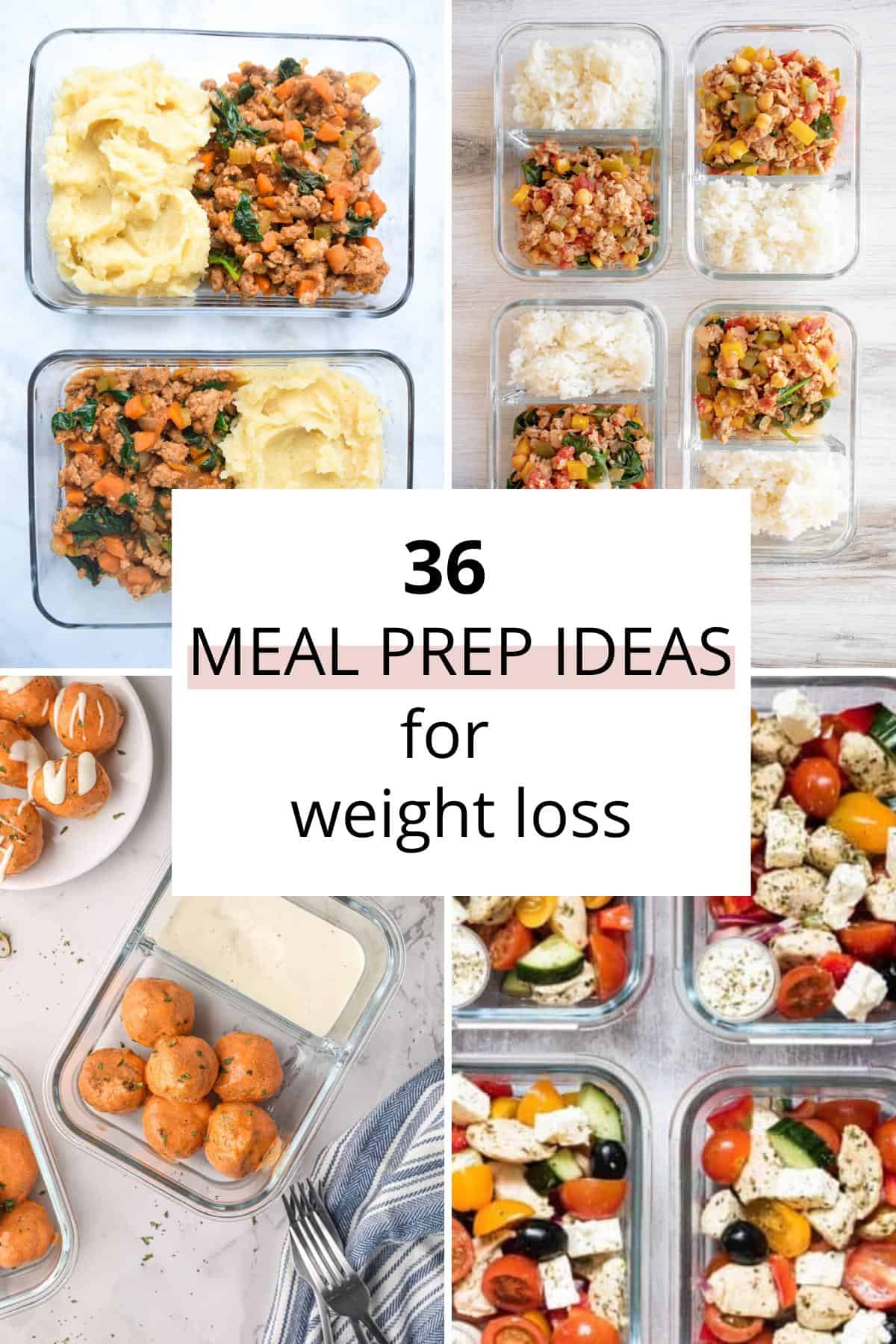
Credit: onewholesomelife.com
Frequently Asked Questions
What Are Healthy Meal Ideas For Weight Loss?
Opt for lean proteins, veggies, whole grains, and healthy fats. Think grilled chicken, quinoa, and steamed broccoli.
How Can I Meal Prep For Weight Loss?
Plan balanced meals, use portion control, and cook in batches. Store in containers for easy access.
What Foods Should I Avoid For Weight Loss?
Skip sugary drinks, refined carbs, and processed foods. Focus on whole, nutrient-dense options instead.
How Often Should I Eat To Lose Weight?
Eat small, balanced meals every 3-4 hours. This helps maintain energy levels and prevents overeating.
What Are Good Snacks For Weight Loss?
Choose fruits, nuts, yogurt, or veggie sticks. These options are low in calories and high in nutrients.
Can I Eat Carbs And Still Lose Weight?
Yes, choose whole grains like brown rice and oats. They provide essential nutrients and keep you full longer.
How Important Is Portion Control In Weight Loss?
Portion control prevents overeating and helps manage calorie intake. Use smaller plates and measure servings for accuracy.
Conclusion
Achieving weight loss with healthy meals is possible and rewarding. Focus on balanced nutrition and portion control. Experiment with fresh ingredients and flavorful recipes. Consistency is key for long-term success. Start your journey to a healthier you today and enjoy the benefits of nutritious, delicious meals.


